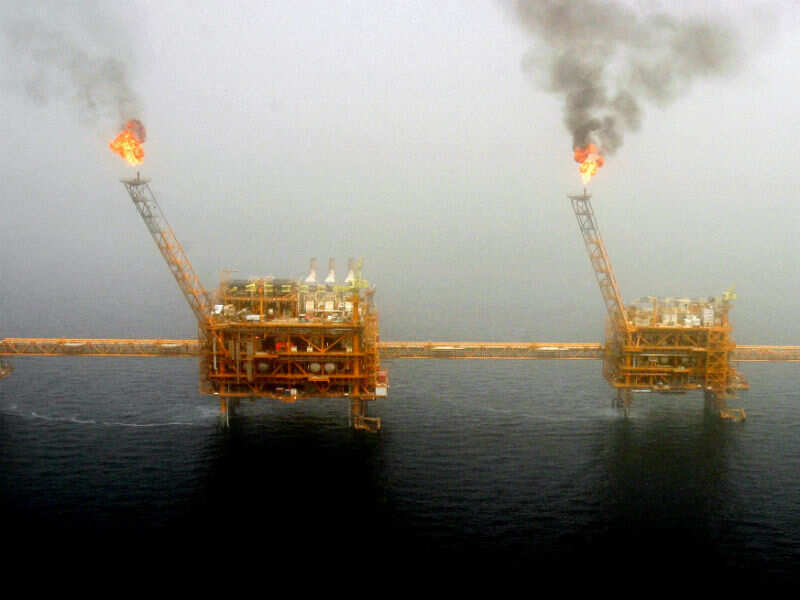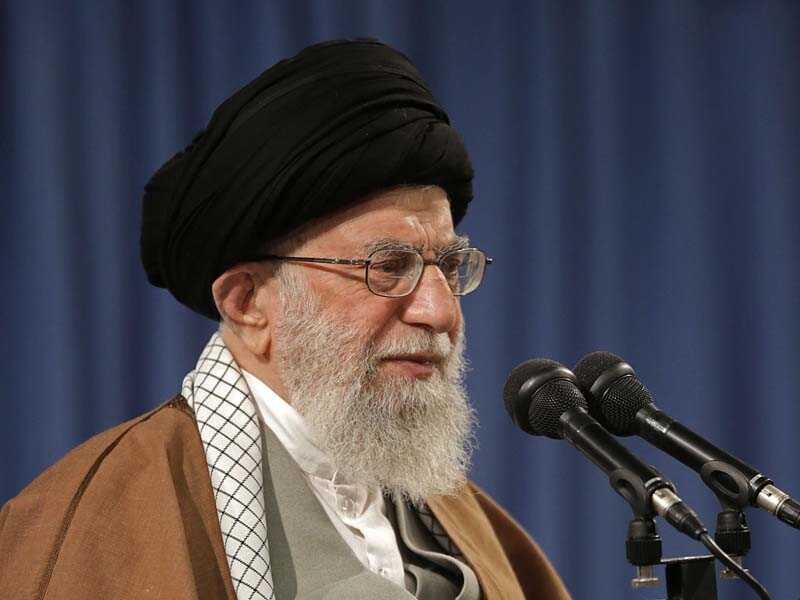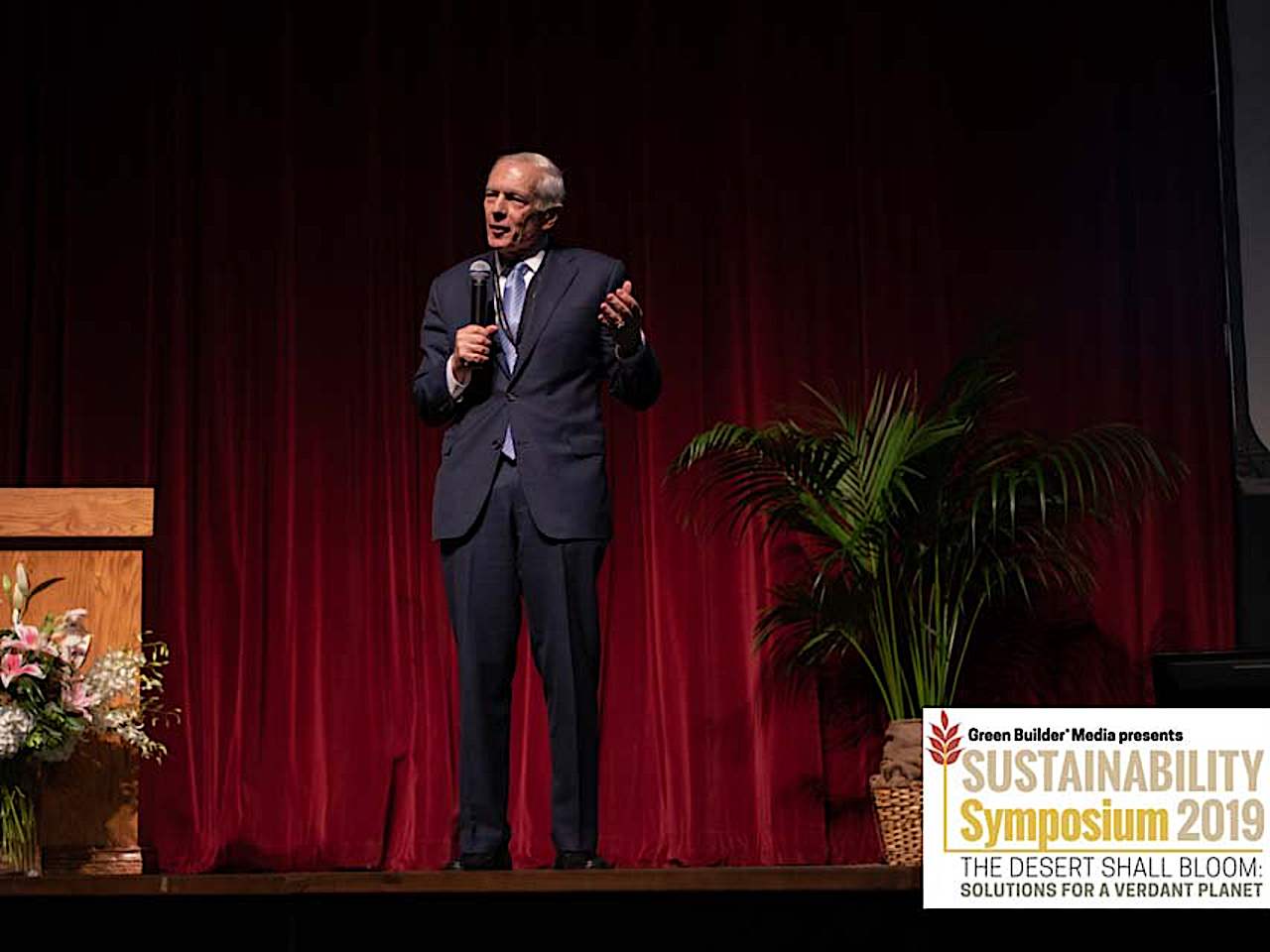Why India can't ignore US sanctions on Iran
TIMESOFINDIA.COM | Updated: Apr 26, 2019, 19:55 ISTHighlights
- India has had to make tough choices in time of sanctions earlier too
- In 2005-08, the UPA government put India's nuclear deal with the US before the need for supporting Iran during US sanctions
 (Representative image)
(Representative image)NEW DELHI: Last year, when the US withdrew from the Iran nuclear deal and President Donald Trump ordered the re-imposition of US sanctions (suspended under the 2015 accord), external affairs minister Sushma Swaraj had said, "India follows only UN sanctions, and not unilateral sanctions by any country". A year later, as the US refuses to extend an exemption granted to India and seven other countries (it expires on May 2),
we have been forced to cut oil imports from Iran
+ , the third largest (and cheaper) source for oil. So why is India (and others) forced to go by what the US says?
Sanctions make it tough: While India has continued to trade with Iran during previous such sanctions, it has had to cut oil imports as the sanctions (that also prohibit transactions by foreign financial institutions with the Central Bank of Iran) choke off banking channels and insurance cover for tankers that carry oil.
It's not just about oil: While announcing the end of waiver to buy Iranian oil, the US also conveyed to India that since it stood by Delhi after the Pulwama attack and is helping with the blacklisting of Masood Azhar, it expects India's support on Iran. There are other irritants in US-India relations that can be affected by India's stand on oil imports from Iran — trade frictions, India's defence deals with Russia and Pakistan's role in Afghan peace talks.
India has had to make tough choices in time of sanctions earlier too. In 2005-08, the UPA government put India's nuclear deal with the US before the need for supporting Iran during US sanctions.
It's not just about US: When there is broad consensus across most countries about the need for sanctions (to prevent the spread of nuclear weapons), it is difficult for India to ignore it. Plus, the US pressure on other countries that do business with India can make things tough for Indian companies and institutions dealing with Iran.
It's leverage: In return for agreeing to go along with the sanctions regime, India can demand concessions in other areas from the US. After all, as a big buyer of Iranian oil, India stands to lose and the sanctions also help the US put more of its own crude on the market (it has a 3% share of India's oil imports).
Sanctions make it tough: While India has continued to trade with Iran during previous such sanctions, it has had to cut oil imports as the sanctions (that also prohibit transactions by foreign financial institutions with the Central Bank of Iran) choke off banking channels and insurance cover for tankers that carry oil.
It's not just about oil: While announcing the end of waiver to buy Iranian oil, the US also conveyed to India that since it stood by Delhi after the Pulwama attack and is helping with the blacklisting of Masood Azhar, it expects India's support on Iran. There are other irritants in US-India relations that can be affected by India's stand on oil imports from Iran — trade frictions, India's defence deals with Russia and Pakistan's role in Afghan peace talks.
India has had to make tough choices in time of sanctions earlier too. In 2005-08, the UPA government put India's nuclear deal with the US before the need for supporting Iran during US sanctions.
It's not just about US: When there is broad consensus across most countries about the need for sanctions (to prevent the spread of nuclear weapons), it is difficult for India to ignore it. Plus, the US pressure on other countries that do business with India can make things tough for Indian companies and institutions dealing with Iran.
It's leverage: In return for agreeing to go along with the sanctions regime, India can demand concessions in other areas from the US. After all, as a big buyer of Iranian oil, India stands to lose and the sanctions also help the US put more of its own crude on the market (it has a 3% share of India's oil imports).
Download The Times of India News App for Latest Business News.










































All Comments ()+^ Back to Top
Refrain from posting comments that are obscene, defamatory or inflammatory, and do not indulge in personal attacks, name calling or inciting hatred against any community. Help us delete comments that do not follow these guidelines by marking them offensive. Let's work together to keep the conversation civil.
HIDE